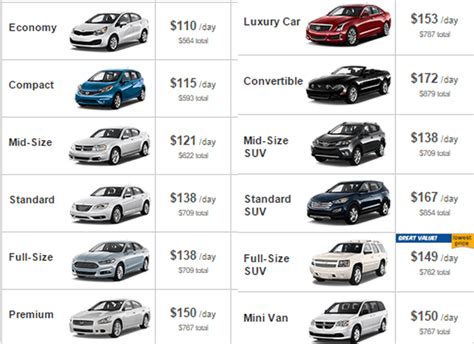How Much Is It To Rent a Car? A Comprehensive Guide to Rental Costs
Renting a car can be a convenient and flexible way to travel, but the cost can vary significantly depending on several factors. Understanding these factors is key to budgeting effectively and finding the best deal. This guide breaks down the components of car rental prices, helping you estimate the total cost and save money.
Factors Affecting Car Rental Prices
Several key elements influence the final price you'll pay for a rental car. Let's explore them in detail:
1. Rental Location:
- Airport vs. Off-Airport: Airport rentals are generally more expensive due to fees and taxes charged by the airport authority. Off-airport locations often offer lower daily rates.
- City vs. Rural Areas: Rental costs in major cities tend to be higher than in smaller towns or rural areas due to higher demand and operating costs.
- Country: Rental car prices vary dramatically between countries. Factors like local taxes, fuel costs, and insurance regulations all play a role.
2. Rental Duration:
- Daily Rates: Daily rates are usually higher for shorter rentals. Rental companies often offer discounts for longer rental periods.
- Weekly Rates: Renting for a week can significantly reduce the per-day cost.
- Monthly Rates: Long-term rentals (monthly or longer) typically have the lowest per-day rates.
3. Vehicle Type:
- Economy Cars: These are the most affordable option, but offer limited space and features.
- Mid-Size Cars: A balance between cost and comfort, offering more space than economy cars.
- Luxury Cars: Expect significantly higher rental costs for luxury vehicles, SUVs, or specialty cars.
- Specialty Vehicles: Vehicles like convertibles, vans, or trucks will also command higher prices.
4. Time of Year:
- Seasonal Fluctuations: Rental prices often increase during peak travel seasons (holidays, summer months) and decrease during off-season periods.
- Demand: High demand periods will result in higher prices due to limited availability.
5. Insurance and Add-ons:
- Collision Damage Waiver (CDW): This insurance covers damage to the rental vehicle. While often recommended, carefully compare the cost against your personal insurance coverage.
- Liability Insurance: This covers damages you cause to other vehicles or property. Check your existing insurance policy for coverage.
- Additional Driver Fees: Adding additional drivers to the rental agreement usually incurs an extra fee.
- GPS and other add-ons: Optional extras like GPS navigation, child seats, or additional equipment will add to the overall cost.
6. Fuel Policy:
- Full-to-Full: You receive the car with a full tank and must return it with a full tank.
- Pre-Paid Fuel: Some companies offer a pre-paid fuel option, but this often isn't the most cost-effective choice.
Estimating Your Rental Car Cost
To get a realistic estimate, use online comparison websites and input your specific travel dates, location, and desired vehicle type. Remember to factor in all potential add-on costs.
Tips for Saving Money on Car Rentals
- Book in Advance: Booking ahead of time, especially during peak seasons, often secures better rates.
- Compare Prices: Utilize comparison websites to find the best deals from different rental companies.
- Consider Off-Airport Rentals: Off-airport locations frequently offer lower rates.
- Look for Discounts: Check for discounts offered through memberships (AAA, etc.) or credit card partnerships.
- Be Flexible with Dates: If your travel dates are flexible, experiment with different dates to see if prices fluctuate.
By understanding these factors and utilizing these tips, you can effectively plan your car rental and ensure you get the best possible value for your money. Remember to always read the terms and conditions carefully before finalizing your booking.
